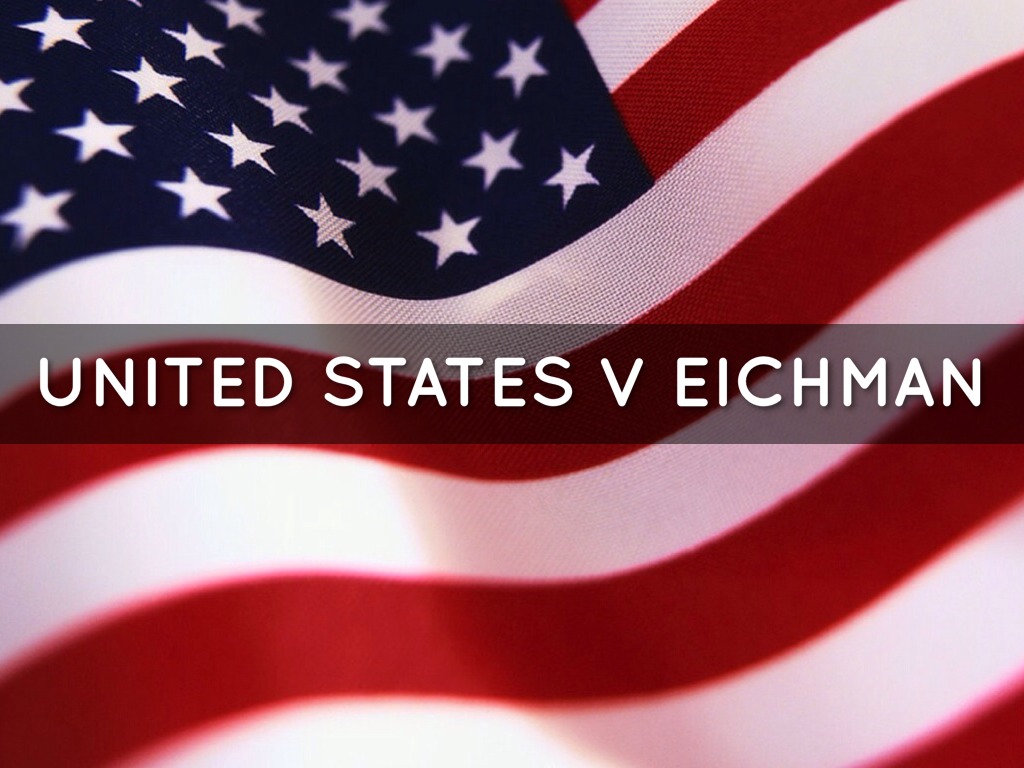Decided June 11 1990. Haggerty resulted from a flag-burning in Seattle protesting the passage of the Flag Protection ActBoth cases Eichmans and Haggertys were argued together.
89-1433 the United States prosecuted certain appellees for violating the Flag Protection Act of 1989 103 Stat.

United states v eichman. EICHMAN David Gerald Blalock and Scott W. Court had ruled earlier that Texas flag desecration statute was unconstitutional. After this Court held in.
United States v. Eichman set a flag ablaze on the steps of the US. Argued May 14 1990.
Haggerty resulted from a flag-burning in Seattle protesting the passage of the Flag Protection ActBoth cases Eichmans and Haggertys were argued together. 397 1989 was a landmark decision of the US Supreme Court that invalidated prohibitions on desecrating the American flag which at. The United States Government then appealed to the Supreme Court.
May 14 1990 Decided. Capitol while protesting the governments domestic and foreign policy. United States Supreme Court case in which the Court held that a New York state law making it a crime publicly to mutilate deface defile or defy trample upon or cast contempt upon either by words or act any flag of the United States was in part unconstitutional because it prohibited speech against the flag.
I by knowingly setting fire to several United States flags on the steps of the United States Capitol while protesting various aspects of the Governments domestic and foreign policy. UNITED STATES Appellant v. Constitutional or unconstitutional to prohibit without reference to the.
In United States v. 700 1988 ed. Decided June 11 1990.
Two cases were consolidated for appeal from United States District Courts for the District of Columbia and for the Western District of Washington holding defendants could not be constitutionally be held liable for burning United States flag in violation of Flag Protection Act of 1989 18 USCS. Argued May 14 1990. Capitol while protesting the governments domestic and foreign policy.
Argued May 14 1990-Decided June 11 1990 After this Court held in Texas v. Get more case briefs explained with Quimbee. 89-1434 the United States prosecuted other appellees for violating the Act by knowingly setting fire to a United States.
397 that a Texas statute criminalizing desecration of the United States flag in a way that the actor knew would seriously offend onlookers was unconstitutional as applied to an. After this Court held in Texas v. In United States v.
310 1990 United States v. Another prosecution United States v. Mark John HAGGERTY Carlos Garza Jennifer Proctor Campbell and Darius Allen Strong.
World Heritage Encyclopedia the aggregation of the largest online encyclopedias available and. Eichman set a flag ablaze on the steps of the US. Eichman and others were prosecuted under the federal Flag Protection Act for setting fire to American flags.
Shortly before noon on October 30 1989 defendants Shawn Eichman David Blalock and Scott Tyler set ablaze several United States Flags on the east steps of the United States Capitol. Supreme Court struck down the Flag Protection Act of 1989 on First Amendment grounds reaffirming its holding in Texas v. 397 that a Texas statute criminalizing desecration of the United States flag in a way that.
United States Supreme Court. Another prosecution United States v. APPEAL FROM THE DISTRICT COURT FOR THE DISTRICT OF COLUMBIA No.
310 1990 the US. UNITED STATES Appellant v. Eichman and the others stated that the Act violated the First Amendment and courts in Washington State and in the District of Columbia agreed.
Johnson which invalidated a Texas flag desecration statute. Eichman. Eichman which was decided exactly 25 years ago on June 11 1990 the Supreme Court once again ruled that burning the flag was an example of constitutionally protected free.
